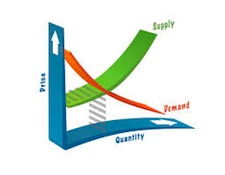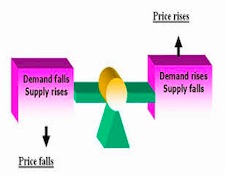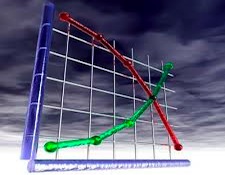It’s the time of year for saving money!
 As long as there has been High End audio, people have wondered about; marveled at, and even been incredulous of, High End pricing. “How”, they’ve wondered, “can it possibly cost so much? And why?” That was certainly my response to the original Marantz and Sequerra tuners, the original Grado Signature phono cartridge, the Infinity IRS, the Wilson WAMM, and to a whole series of products since them that, whether or not they were actually able to set new standards of performance, were certainly able to boggle the mind with their pricing.
As long as there has been High End audio, people have wondered about; marveled at, and even been incredulous of, High End pricing. “How”, they’ve wondered, “can it possibly cost so much? And why?” That was certainly my response to the original Marantz and Sequerra tuners, the original Grado Signature phono cartridge, the Infinity IRS, the Wilson WAMM, and to a whole series of products since them that, whether or not they were actually able to set new standards of performance, were certainly able to boggle the mind with their pricing.
When considering products like these (including, most recently, the 25th Anniversary Goldmund Apologue speaker system, priced at a cool half million [US$500,000] for one of a limited run of only twenty-five pairs), one question that seems immediately to pop into the mind of most people is: “How can they possibly charge (that much)for that thing, when there’s no way in the world that it can cost them any more than (this much) to build?”, followed, inevitably, by something like: “What a ripoff! I could build that exact same thing for myself for a WHOLE LOT less money!”
Let’s, just for fun, suppose that all those people were right and that, whether or not they could actually build it themselves, the product’s cost of production to the factory really was only a small fraction of its Manufacturer’s Suggested Retail Price (“MSRP”). So what? Does that really matter? Should it? What effect, if any, does the cost of making something have in determining what it should sell for?
 In discussing this, let’s not start with a product like a speaker system that can obviously be seen to incorporate some quantity of materials and labor that was of some obvious cost to the producer. Instead, let’s consider a different kind of product, altogether: music downloads. Once a music file has been loaded the first time, downloads can be sold over and over again with no materials or labor costs whatsoever. So what does that do to their value? Could it possibly mean that, even at the low prices such things normally sell for, they’re still overpriced? If they have no materials and no labor, do they have no value?
In discussing this, let’s not start with a product like a speaker system that can obviously be seen to incorporate some quantity of materials and labor that was of some obvious cost to the producer. Instead, let’s consider a different kind of product, altogether: music downloads. Once a music file has been loaded the first time, downloads can be sold over and over again with no materials or labor costs whatsoever. So what does that do to their value? Could it possibly mean that, even at the low prices such things normally sell for, they’re still overpriced? If they have no materials and no labor, do they have no value?
Of course not, on a physical recording like an LP or CD that DOES involve materials and some amount of labor, it’s not he materials or labor that you’re buying; it’s the music and the ability to play it any time you want to. Isn’t that exactly the same for a download? If it’s the music that you’re buying, what difference does it make if some other things (like parts, labor, and packaging) aren’t there?
The fact of the matter is that the value IN anything at all is the thing about it (and ONLY that thing) that people are willing to buy, and the value OF that thing is neither more nor less than what a willing buyer is willing to pay for it and a willing seller is willing to accept in trade. Nothing else matters and nothing else will affect the value of the transaction. Intrinsic value? Consider Pliny’s story of Cleopatra serving pearls to Antony for dinner. Sentimental value? That, like use value, MSRP, or anything else, may be a factor in determining a buyer’s or seller’s offered or accepted price, but even if it is, it’s just a factor, and the final sale price – the final REAL value of any good ― will be determined only by the parties to the trade and not by the good, itself.
So what about cost of production? We’ve already taken a look at an example – music downloads – with a very low cost of production, but what about one where the production cost is high?
]]> Consider for a moment that someone – maybe even a close friend of yours – goes into business to manufacture cars. Let’s suppose that he’s a fine person and that he really means well, but that he has no knowledge of how to run a business and no experience at all in actually building cars. Just for lagniappe, let’s also suppose that, along with his other business shortcomings, he’s a terrible negotiator and winds-up paying much more for the things that he buys from his suppliers than a more qualified businessman might. If he ever actually gets his cars built and brings them to market, it’s not unreasonable to expect that they might have cost him a lot more to build than other cars from more efficient and better managed factories. In fact, even if his cars were intended just to provide minimum transportation, if his production were sufficiently inept, it might even be that their actual cost of production was just the same as the most luxurious Cadillac or Mercedes.
Consider for a moment that someone – maybe even a close friend of yours – goes into business to manufacture cars. Let’s suppose that he’s a fine person and that he really means well, but that he has no knowledge of how to run a business and no experience at all in actually building cars. Just for lagniappe, let’s also suppose that, along with his other business shortcomings, he’s a terrible negotiator and winds-up paying much more for the things that he buys from his suppliers than a more qualified businessman might. If he ever actually gets his cars built and brings them to market, it’s not unreasonable to expect that they might have cost him a lot more to build than other cars from more efficient and better managed factories. In fact, even if his cars were intended just to provide minimum transportation, if his production were sufficiently inept, it might even be that their actual cost of production was just the same as the most luxurious Cadillac or Mercedes.
So now the question: Given the same cost of manufacture, do you think his cars should be priced the same as their more upscale competitors? Would you pay it? No? Why not? If they cost the same to build, why shouldn’t they sell for the same price?
 The fact of the matter is that THE COST OF PRODUCTION HAS ABSOLUTELY NOTHING TO DO WITH EITHER THE VALUE OR THE SELLING PRICE OF ANY GOOD. Both of those are determined only by their worth to the buyer and the seller; accepted as offered or agreed to after negotiation. THE ONLY THING AT ALL THAT COST OF PRODUCTION HAS ANY DETERMINING EFFECT ON IS WHETHER OR NOT ANY MORE GOODS WILL BE PRODUCED! Cost-based pricing formulas never work: If a good (like our friend’s cars, for example) is priced too high – even in an effort to recover a too-high production cost ― nobody will buy it, and it will sit “on the shelf” until a close-out sale or even a bankruptcy brings the price down to a level that people are willing to pay. If that price is below the cost of production, no more goods will be produced. It’s as simple as that.
The fact of the matter is that THE COST OF PRODUCTION HAS ABSOLUTELY NOTHING TO DO WITH EITHER THE VALUE OR THE SELLING PRICE OF ANY GOOD. Both of those are determined only by their worth to the buyer and the seller; accepted as offered or agreed to after negotiation. THE ONLY THING AT ALL THAT COST OF PRODUCTION HAS ANY DETERMINING EFFECT ON IS WHETHER OR NOT ANY MORE GOODS WILL BE PRODUCED! Cost-based pricing formulas never work: If a good (like our friend’s cars, for example) is priced too high – even in an effort to recover a too-high production cost ― nobody will buy it, and it will sit “on the shelf” until a close-out sale or even a bankruptcy brings the price down to a level that people are willing to pay. If that price is below the cost of production, no more goods will be produced. It’s as simple as that.
So, here’s a clue: If you see something that you want but it’s too expensive, DON’T BUY IT! If nobody else buys it, either, the price WILL come down ― maybe even to what you’re willing to pay. Of course, if nobody else wants it, to the point that its price has to drop drastically in order for the seller to get rid of it, maybe you shouldn’t buy it either!
See? Price theory in action! Part 2 will show why supply and demand aren’t the only determinants of what a thing sells for.





